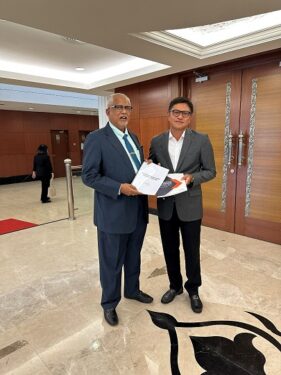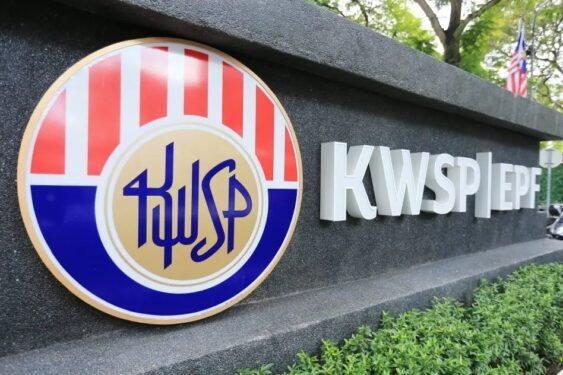THE Retail and Trade Brand Advocacy Malaysia Chapter (RTBA Malaysia), a non-governmental organisation (NGO) that safeguards businesses from criminal conduct has handed a memorandum opposing the Generation End Game (GEG) policy to Masjid Tanah MP Datuk Wira Mas Ermieyati Samsudin along with several other MPs.
Mas Ermieyati is a member of the Parliamentary Special Select Committee (PSSC), responsible for reviewing the Tobacco and Smoking Products Control Bill 2022 (Bill). The bill incorporates the GEG policy which seeks to ban the use and sale of cigarettes and vape products to those born after 2007.
“As an association that protects brands, we believe we have a significant role to play in sharing the concerns of Malaysian businesses on issues that are pertinent in the industry,” commented RTBA Malaysia’s managing director Datuk Fazli Nordin,
“The GEG policy is not only concerning businesses but also many layers of the Malaysian society including lawyers, consumers, and even medical professionals.”
RTBA Malaysia’s objective in handing its memorandum was to ensure that MPs who are present at the Parliament sessions are aware of the views of Malaysians on both the bill and the GEG policy.
“Part of our submission included a petition by Malaysia Bersuara that has garnered over 760,000 signatures. This is a very substantial figure which shows that the GEG policy is not seen as a pragmatic solution to reduce smoking prevalence,” asserted Fazli.

The memorandum highlighted four key issues, including:
- Impact on businesses & economy: GEG policy will have an industry-wide economic impact, taking away revenue from legal retailers and entrepreneurs. The vape industry which is primarily made up of Bumiputera small medium enterprises (SMEs) will also be affected as their industry will shrink considerably through the years if the GEG is implemented.
- Impact on freedom & discrimination of Malaysian citizens: GEG policy is in violation of Article 8(1) of the Federal Constitution that guarantees equality and equal protection under the law. Setting an age limit on a permanent prohibition to smoke is discriminatory and against the spirit of Article 8.
Further, the GEG policy creates differential treatment of one group of individuals (born after 2007) who will be prohibited for life from smoking or vaping despite reaching the legal age of 21.
- Increase in illegal tobacco: The GEG policy will fuel the already significant tobacco black market which currently commands around 60% of the total market in Malaysia. Through prohibitive measures, the country is likely to see a boom in the black market as illegal cigarettes would be in higher demand, thus much easily accessible to the generation affected by the GEG.
Furthermore, the ban on vape will push retailers underground where they will be able to sell vape products without adhering to any regulations.
- Differentiating cigarettes and vape: The current GEG policy positions cigarettes and vape in the same category. Science, however, has clearly indicated that cigarettes and vape are completely different products with different risk levels. By equating both products, the Health Ministry (MOH) is setting a dangerous precedence which may deter smokers from switching to the less harmful vape.
“The GEG will impact all Malaysians regardless of whether they smoke or not. We urge our MPs to thoroughly review all aspects of the bill and the GEG before approving it for implementation,” suggested Fazli. “We do not want to be in a situation where the GEG is implemented in a rush, only with dire consequences later.” – Oct 5, 2022










